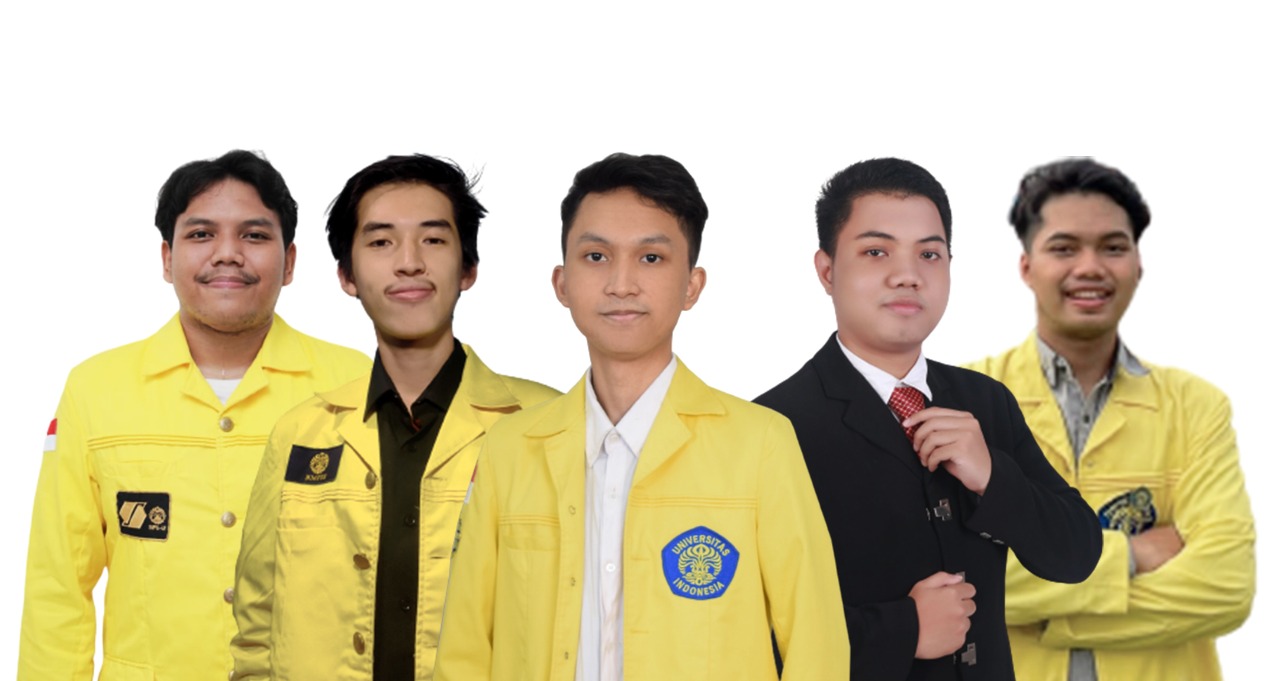The team from the Department of Civil and Environmental Engineering, Faculty of Engineering, Universitas Indonesia (DTSL FTUI) succeeded in advancing to the final selection stage for the 2022 National Student Science Week (PIMNAS). GFT). The team consists of Juan Fidel Ferdani (Civil Engineering 2019), Irwan (Environmental Engineering 2019), Rubby Anistia Prasetyo (Civil Engineering 2020), Brily Najmussabah (Environmental Engineering 2020), and Evan Ariel Christoper (Civil Engineering 2020).
Rubby and the team came up with the futuristic city design for Star City: Underwater City. Star City is an underwater city concept with three advantages, namely energy independence, food independence, and resilient housing. In initiating the Star City concept, Rubby and the team were guided by DTSL FTUI Lecturer, Dr. Nyoman Suwartha, ST., MT., MAgr.
“We designed the Star City idea by looking at the condition of densely populated islands in Indonesia which are currently threatened by rising sea levels and increasing housing needs and supporting facilities which are increasingly difficult due to limited land. These two things then lead to an increase in the number of slum settlements and the phenomenon of urban sprawl in urban areas. An increase in population can also result in land subsidence due to increased demand for clean water. This leads to flooding and loss of land use which will result in a decrease in people’s quality of life,” Rubby said.
The concept of the underwater city of Star City as a future residence is designed to utilize sunlight and sea waves as an energy source with the support of technology, such as OTEC, PLTGL, and floating PV. Residential structures in Star City will use a damping structure system, transportation modes undersea maglev systems, and a waste management system with gray water treatment phytoremediation. Star City residents can also fulfill their food needs with the microgreen vertical garden concept.
Aside from being a residential city, Star City is also designed to be a marine conservation center equipped with innovations in coral reef cultivation (Marine Cultures), marine megafauna monitoring technology (WIPSEA), and a marine biodiversity collection gallery (Marine Gallery). It is hoped that the Star City concept will be able to realize a city area with energy independence, food independence, sustainable housing, and environmentally friendly technology-based marine conservation. This is expected to be a solution for the community and the government to the limited land due to the urbanization of the population.
“There are several aspects that we highlight in this Star City concept. First, to maintain energy continuity, Star City uses environmentally friendly energy sources based on light, heat, and motion energy. The heat energy used comes from OTEC (Ocean Thermal Energy Conversion) and heat energy comes from solar radiation, while the motion energy comes from wave energy. Second, to meet food needs, we apply an innovative cropping system with limited land, namely the microgreen concept. Microgreens are plants that are harvested at a vulnerable time of 7-14 days or after going through the germination process. Species that can be used as microgreens are very diverse, such as vegetables, and spices, to staple foods such as wheat,” explained Dr. Nyoman Suwartha.
For the aspect of the resilient residence, Star City will be supported by several supporting infrastructures, namely in terms of transportation, structural security, and wastewater treatment. It is intended that Star City residences can last a long time under various conditions.
Dean of FTUI, Prof. Dr. Heri Hermansyah, ST., M.Eng., IPU expressed his appreciation and hopes for the idea of Star City. “The idea of Star City which has three advantages, namely energy independence, food independence, and resilient housing can be a solutive idea for various housing problems currently faced by Indonesia. Hopefully, this idea can also bring the Star City team to win the 35th PIMNAS later and bring home proud achievements for FTUI and UI.”
Thanks to this solutive idea, Rubby and the team will again compete against other teams from all over Indonesia at the 2022 National Student Scientific Week (PIMNAS). Poor.
***
Bureau of Public Communications
Faculty of Engineering, Universitas Indonesia

